#TwitterBan: Buhari pretending to be a born-again democrat, says group of intellectuals
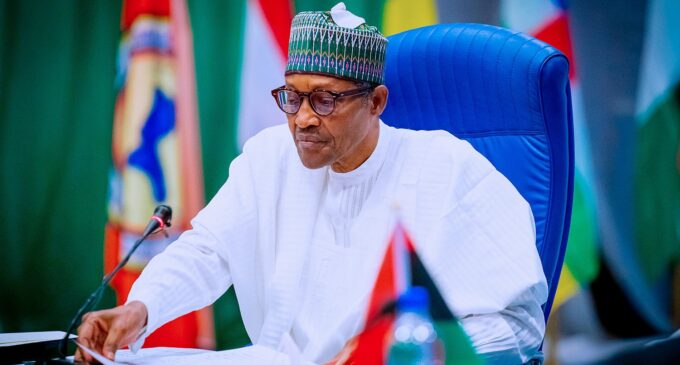
A group of lecturers based mostly in the US and Canada has condemned the federal government’s decision to suspend the use of Twitter in Nigeria.
The federal government had, on June 4, announced the suspension of the microblogging platform.
The suspension came after a tweet by President Muhammadu Buhari was taken down by the social media platform.
In a statement on Thursday, the group which consists of mostly lecturers — many of whom are in the diaspora — and a few members of civil society organisations, described Buhari as a “dictator”, adding that the only difference between his regime of 1984 and the present administration is that he no longer wears “khaki”.
“While campaigning for office, President Buhari presented himself as a “born-again democrat” and, once elected, swore to abide by the Nigerian Constitution. On the contrary, most of his actions and public positions as regards individual freedoms are unmistakably those of a dictator,” they said.
“He seems to act speedily only when there is a political enemy to be punished, retreating into a habitual lethargy as soon as the threat is eliminated. To many people within and without Nigeria, the Buhari of 2021 is different from the Buhari of 1984 only to the extent that the latter is older and not wearing khaki!”
The group said apart from the recent issue, the government has always “exhibited a willingness to censor public debate, especially on social media”.
“The proposed but defeated Social Media Bill of 2019 was an early signal of this position. In the aftermath of the #EndSARS protests of October 2020, the Minister for Information, Mr Lai Mohammed, publicly declared that social media must be ‘regulated’ in order to prevent the spread of ‘fake news’,” the statement reads.
“There is a sense in which Nigeria as a country is going through a long, transitional period of democratic awakening, considering that the fourth republic marks the first sustained span (of twenty-two years) of civilian rule since independence.
“From this perspective, it is understandable that different aspects of society–political, economic, religious, and the like–come to belated awareness of its intrinsic value and significance. What appears like disorder from a purely statistical or empirical point of view could then be perceived as a civilian body politic, a system of rule of law, slowly renewing itself away from the predatory, psychological violence of military rule.
“However, as the government under President Buhari has shown, a civilian government does not automatically make for a rule of law regime or a democracy underpinned by the separation of powers marked by a just, humane, and transparent conduct of government.
“If the actions of the current government are anything to go by, a civilian government is clearly and unceasingly reversing the gains of nearly three decades of public-spirited citizens holding the government of the day to standards of democracy, whether such a government is led by a soldier or by a civilian.”
According to the group, “the first step toward checking this situation is to insist on the primacy of the separation of powers between the three arms of the government, and the practical checks and balances it affords.”
“The current national assembly is alarmingly in lockstep with the executive, merely rubberstamping the latter’s propositions, and for all practical purposes sitting idly by at a time of serious national emergency,” they added.
Signatories to the statement are listed as: Abimbola Adelakun, The University of Texas at Austin; Akin Adesokan, Indiana University; Kunle Ajibade, The News, Lagos; Ebenezer Obadare, University of Kansas; Moses Ochonu, Vanderbilt University; Olufemi Taiwo, Cornell University; Olufemi Vaughan, Amherst College; Jacob Olupona, Harvard University; Simeon Ilesanmi, Wake Forest University; James Yeku, University of Kansas; and Oka Obono, University of Ibadan.
Others are Farooq Kperogi, Kennesaw State University; Toyin Falola, University of Texas at Austin; Akanmu Adebayo, Kennesaw State University; Adedoyin Ogunfeyimi, Dartmouth College at Hanover; Peyibomi Soyinka-Airewele, Ithaca College; Samuel Zalanga, Bethel University, Saint Paul, Minnesota; Ainehi Edoro-Glines, University of Wisconsin-Madison; Mojúbàolú Olufúnké Okome, Brooklyn College, CUNY, and Rotimi Suberu, Bennington College, Vermont.
The list of signatories also includes: Oyeronke Oyewumi, Stony Brook University, New York; Tade Ipadeola, The Khalam Collective, Ibadan; Saheed Aderinto, Western Carolina University; Ibrahim Abdullah, Fourah Bay College, Freetown; Asonzeh Ukah, University of Cape Town; Iruka Okeke, University of Ibadan; Jibrin Ibrahim, Centre for Democracy and Development, Abuja; Niyi Afolabi, University of Texas at Austin; Chiedo Nwankwor, Johns Hopkins School of Advanced International Studies; Cajetan Iheka, Yale University, and Nimi Wariboko, Boston University.
Also listed are: Nwando Achebe, Michigan State University; Akin Ogundiran, University of North Carolina, Charlotte; Omolade Adunbi, University of Michigan; Rita Kiki Edozie, University of Massachusetts-Boston; Sa’eed Husaini, Centre for Democracy and Development, Abuja; Biko Agozino, Virginia Techs; Folu Ogundimu, Michigan State University; Funso Afolayan, University of New Hampshire, and Tola Olu Pearce, University of Missouri, Columbia.






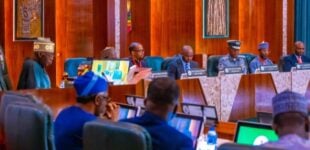

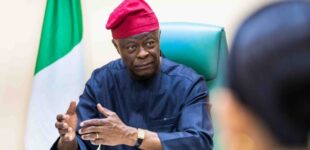

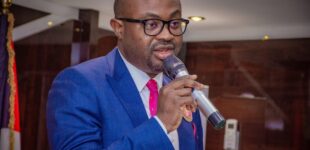
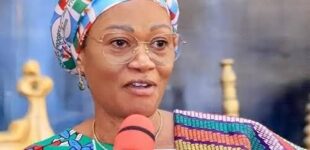
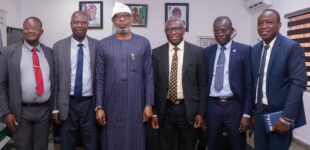


There are no comments at the moment, do you want to add one?
Write a comment